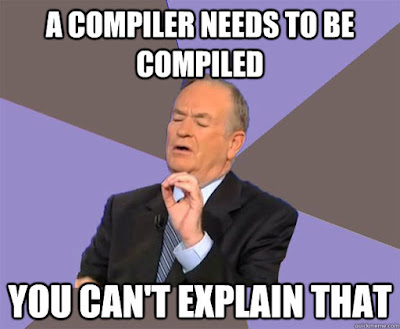Making Compiler Design Relevant for Students who will (Most Likely) Never Design a Compiler
This article may have a really long title, but it explicitly invites you to read it, without having to go through too much stuff. "Making compiler design relevant for students who will (most likely) never design a compiler" is the title for an article written by Saumya Debray. I think this is one of the hardest classes for people in my major, not because it is misunderstood. Everybody gets the idea that they're going to built a somewhat version of a compiler, and that sound like a hard thing to do, therefore, they're prepared for that, and think is way too hard.
Compiler design goes beyond a simple or advanced compiler. Compiler have to take a buch of code, and pretty much tell a computer to understand it. How do we make it efficient? Where should we throw exceptions? Why does a programming language behave certain ways. This questions are why compiler design should be relevant to anyone using a compiler for their language; basically, any developer.
Lastly, there are some phases of a compiler that are determined to be efficient and the best way to build a compiler. These are:
- Lexical Analysis
- Syntactical Analysis
- Semantic Analysis
- Code Generation
- Code Parsing
Compiler design goes beyond a simple or advanced compiler. Compiler have to take a buch of code, and pretty much tell a computer to understand it. How do we make it efficient? Where should we throw exceptions? Why does a programming language behave certain ways. This questions are why compiler design should be relevant to anyone using a compiler for their language; basically, any developer.
Lastly, there are some phases of a compiler that are determined to be efficient and the best way to build a compiler. These are:
- Lexical Analysis
- Syntactical Analysis
- Semantic Analysis
- Code Generation
- Code Parsing

Comentarios
Publicar un comentario